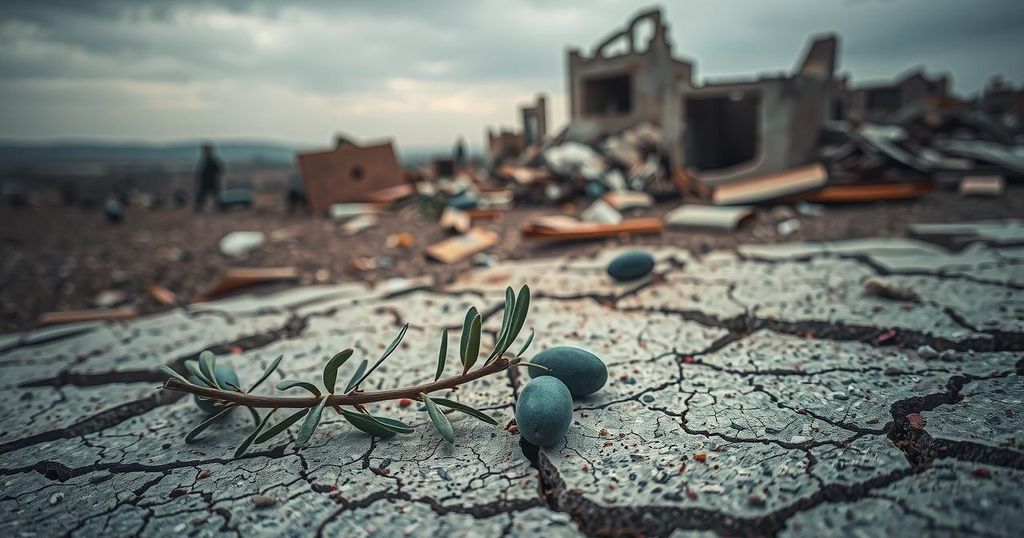UN Rights Chief Raises Alarm Over Civilian Targeting in Sudan Conflict

UN rights chief Volker Turk warns of increasing civilian attacks in Sudan as SAF and RSF fight for dominance. Recent ethnically targeted violence in Al Gezira has led to numerous deaths and injuries. Rampant violence extends to South Sudan, prompting retaliatory attacks against Sudanese refugees. The U.S. has sanctioned SAF leader Al Burhan, escalating tensions. The conflict has caused one of the worst humanitarian crises globally, displacing over 11.5 million people.
The situation in Sudan has become increasingly dire for civilians amid the ongoing conflict between the Sudanese Armed Forces (SAF) and the paramilitary Rapid Support Forces (RSF), as highlighted by UN High Commissioner for Human Rights Volker Turk. Since the outbreak of hostilities in April 2023, there has been a significant rise in direct and ethnically motivated attacks targeting civilians. Turk reported disturbing trends, noting that as control over regions becomes more contentious, the consequences for non-combatants escalate dramatically.
In the past week alone, the violence has intensified, particularly in the south-eastern state of Al Gezira, where the UN Human Rights Office has documented at least 21 deaths resulting from just two attacks. Recent battles saw the SAF regain control of Al Gezira’s capital, Wad Medani, but the RSF continues to maintain influence in various areas neighboring Khartoum, exacerbating the crisis for local populations.
The Emergency Lawyers group reported that an attack by RSF fighters on Al Khizan village resulted in the deaths of 15 individuals and injuries to over 20 others, displacing many residents. Following the SAF’s recapture of Wad Medani, they began targeting ethnic groups from Darfur, with distressing video footage circulating online showing violence against these communities, reinforcing fears regarding ethnic persecution during the conflict.
The violence has not been confined to Sudan, as reactions ripple across borders into South Sudan. Videos portraying SAF members attacking South Sudanese citizens have led to retaliatory violence against Sudanese refugees in South Sudan, with mobs initiating assaults against properties and businesses owned by Sudanese nationals. This cycle of retaliation has left three deceased and several injured in the capital, Juba.
In response to escalating tensions, South Sudan’s President Salva Kiir has urged calm, enacting a curfew in Juba and deploying security forces to safeguard Sudanese residents and their properties. The Sudanese Foreign Ministry expressed appreciation to South Sudan for their collaboration while advising citizens to remain vigilant amidst the unrest.
Furthermore, sanctions have been placed by the United States on General Abdel Fattah Al Burhan, the SAF leader, following accusations of war crimes stemming from the violence in Wad Medani. Subsequent retaliation from Sudan’s Foreign Ministry criticized these sanctions as unjust, arguing they fail to consider the complexities of the ongoing conflict, while SAF-affiliated agencies echoed similar sentiments regarding foreign interference in Sudan’s affairs.
As the conflict persists, it is characterized as one of the worst humanitarian crises globally, with approximately half of Sudan’s population requiring aid and protection. The ongoing violence has resulted in tens of thousands of fatalities and left over 11.5 million people displaced since the conflict began.
The ongoing conflict in Sudan arose from a struggle for power between the Sudanese Armed Forces (SAF) and the Rapid Support Forces (RSF), escalating to alarming levels since April 2023. Direct attacks on civilians, influenced by ethnic divisions, have become prevalent. The situation has resulted in a humanitarian crisis that has displaced millions and prompted international concern and condemnation.
In summary, the ongoing conflict in Sudan is marked by escalating violence against civilians, particularly ethnic minorities, amid a power struggle between the SAF and RSF. surrounding regions are affected by this violence, with international responses invoking sanctions and local governments attempting to manage community tensions. The humanitarian implications are dire, with millions affected as the conflict continues unabated.
Original Source: www.thenationalnews.com








